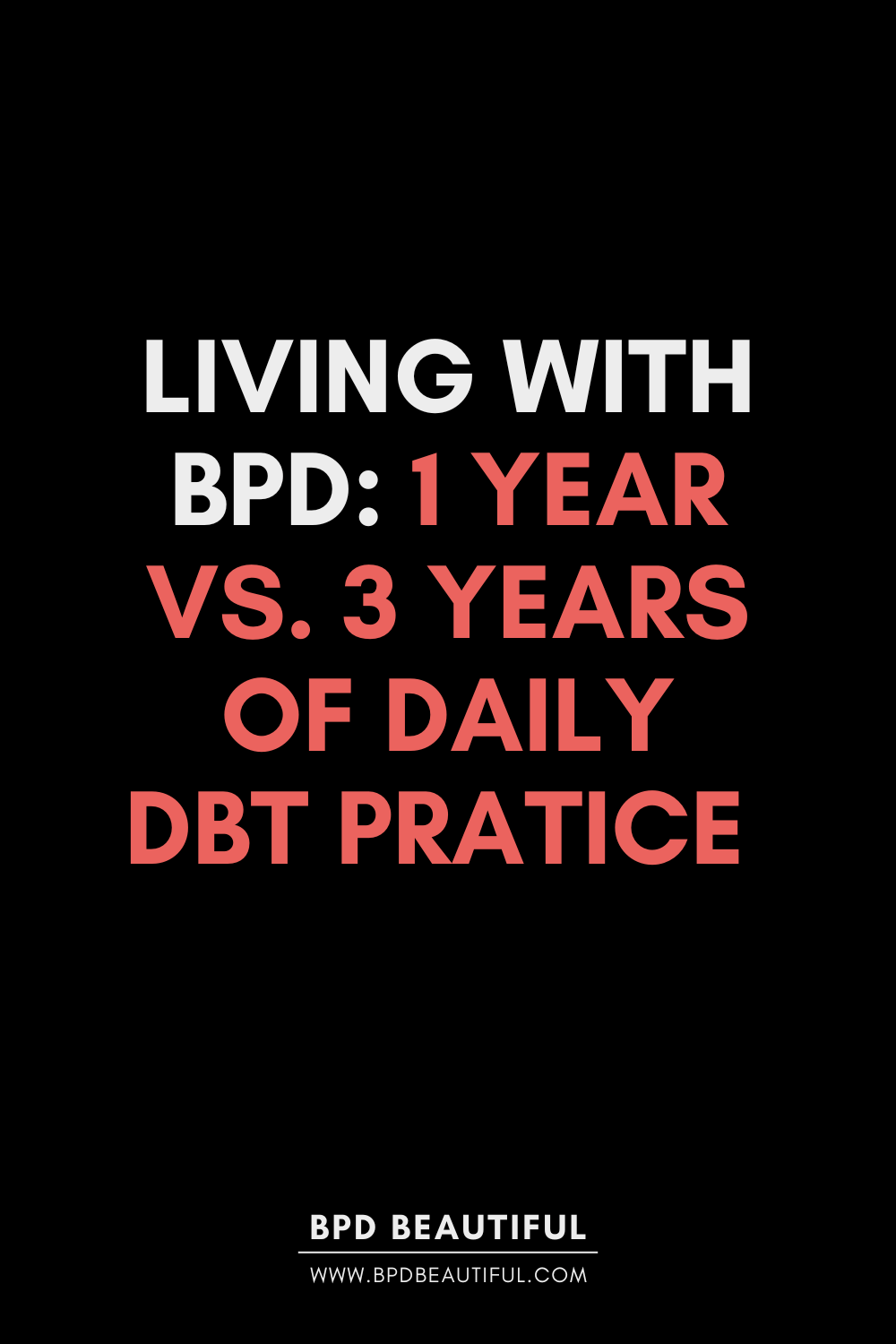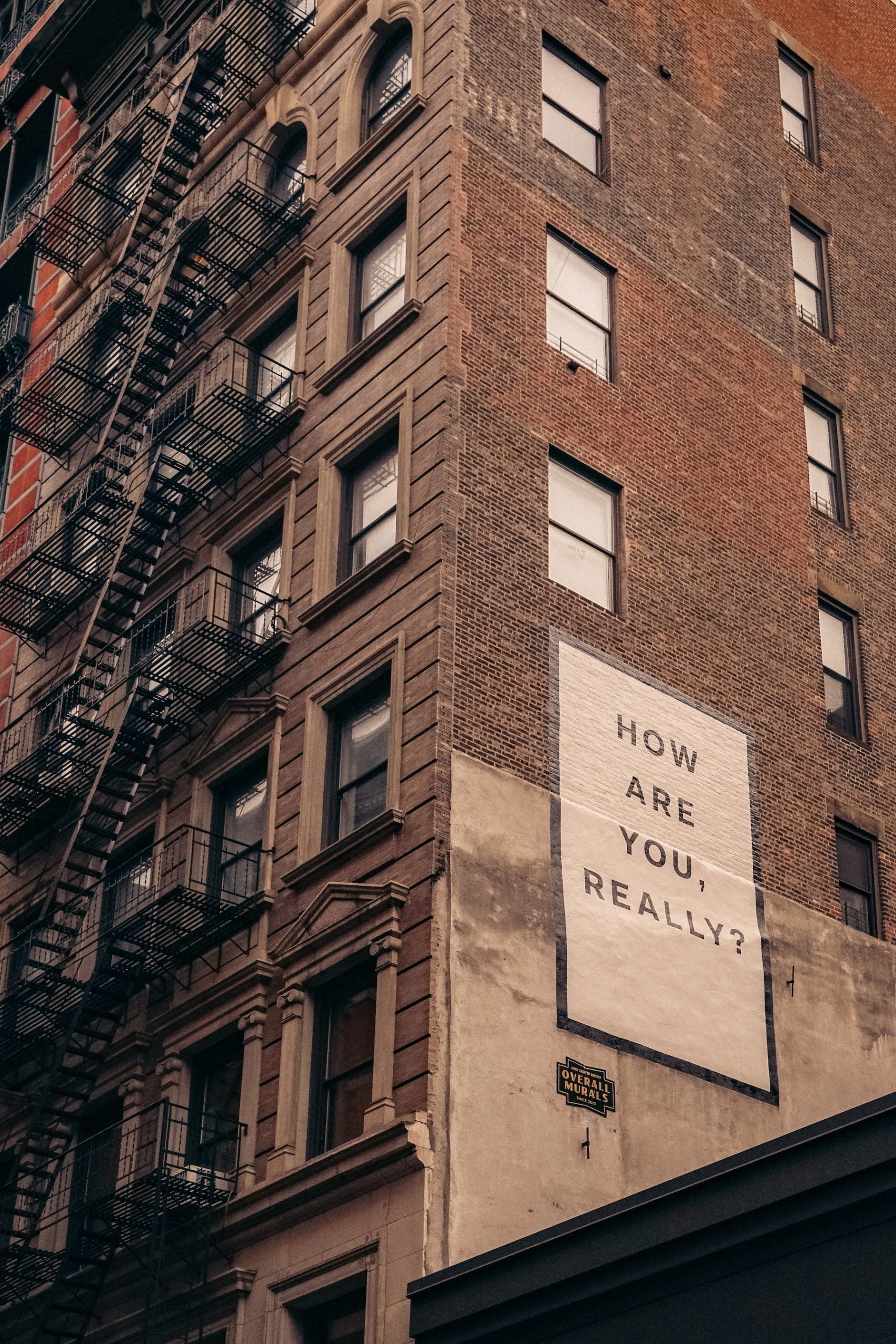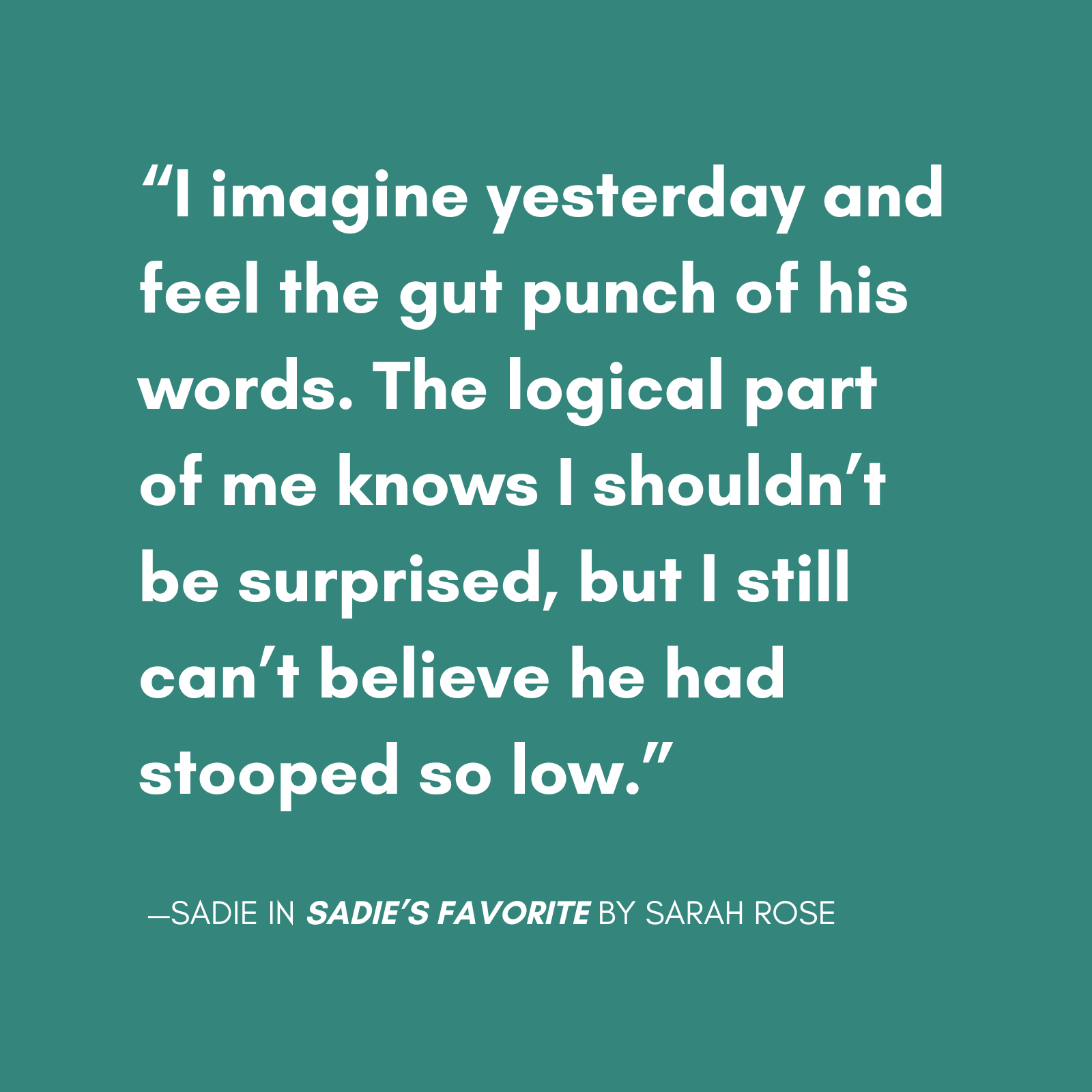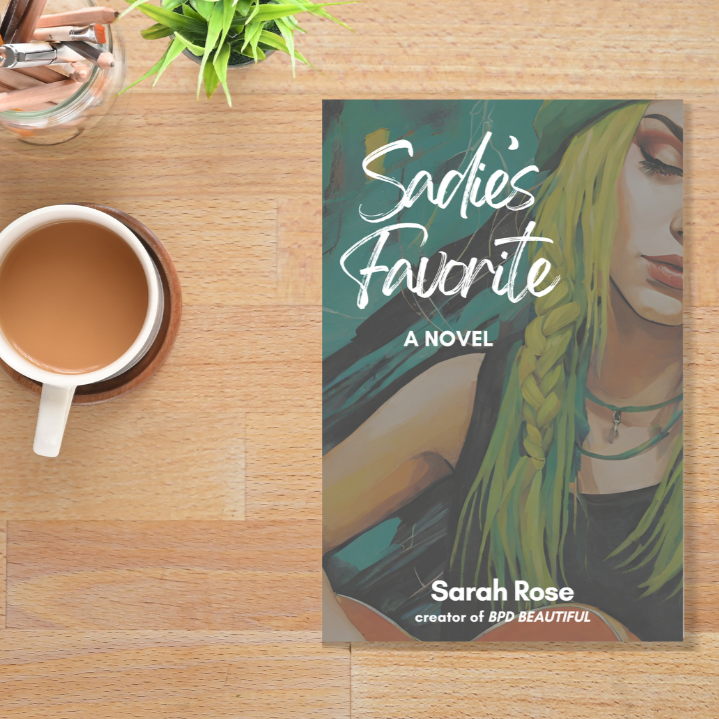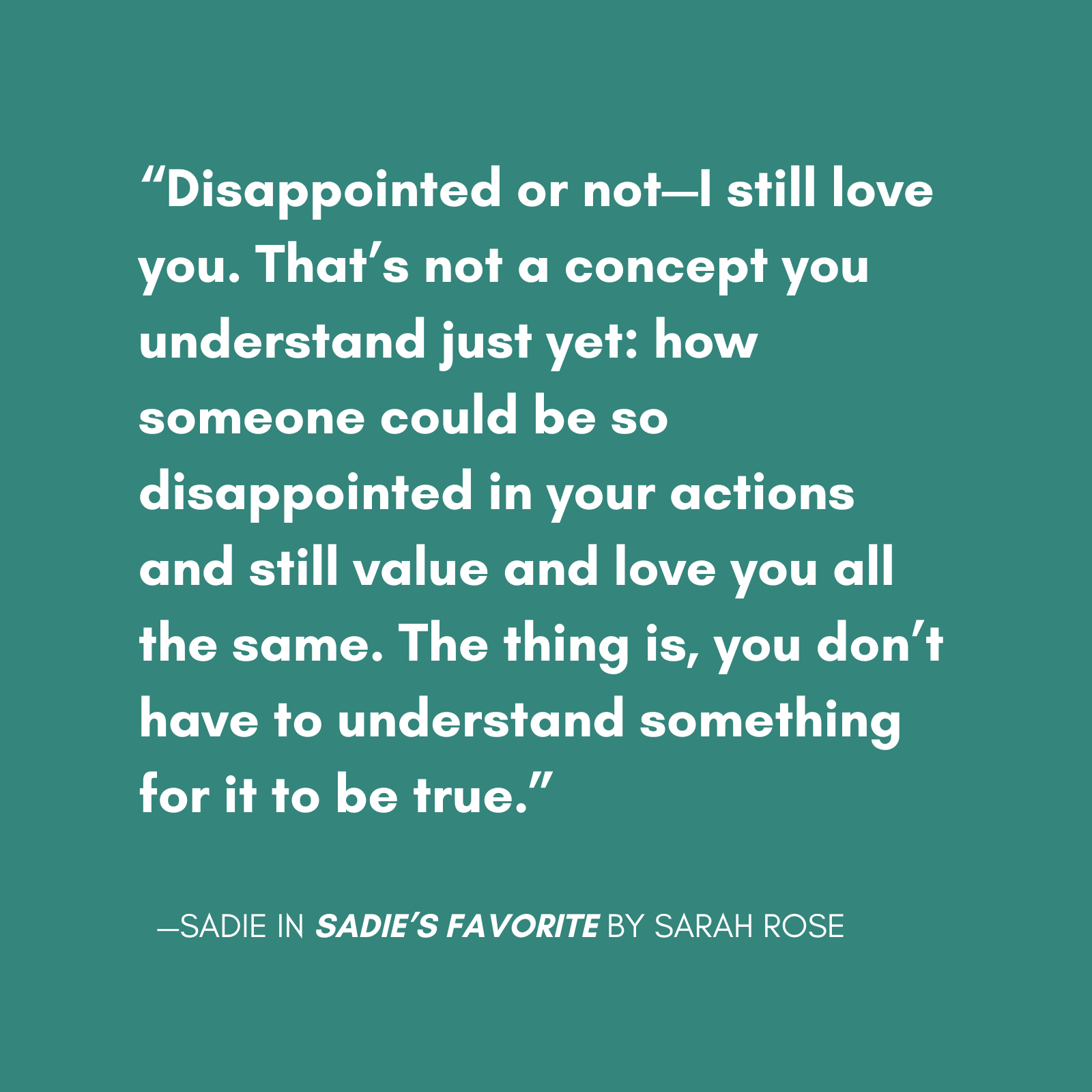Living with BPD: From Hopeless to Recovery
My name is Sarah and I spent 20 years living with undetected BPD before getting diagnosed and going into remission. I created BPD Beautiful because I want to help spread BPD awareness and help others in understanding BPD—a debilitating, life threatening and highly stigmatized condition that causes frequent and intense mood swings, all or nothing thinking, a fear of abandonment, a chronic feeling of emptiness, explosive rage and more.
The first section of the following post was started in 2020 just about one year after starting DBT. Present day takeaways written in 2022 are in the second section to show how three years of regular DBT practice can help someone living with BPD.
Currently (in Sept 2022)—I am in remission and have went from having all 9 BPD symptoms to only having 2-3 BPD symptoms. This means I, at the time, do not meet diagnostic criteria. Borderline personality disorder is treatable. This post is proof of that.
Keep in mind, however, that before getting diagnosed with borderline personality disorder and starting DBT in 2019—I was in therapy for 8 years working on an eating disorder, depression, codependency and childhood trauma.
While my BPD went undetected during this time, those 8 years of therapy were still immensely helpful in developing healthier coping skills and an emotionally healthier mindset overall. I imagine if I hadn’t done that many years of therapy prior to starting DBT for BPD, it would have taken me much longer to get where I am today.
So if you’ve been struggling with BPD for seemingly longer than I have, don’t fret. BPD recovery looks different for everyone and it doesn’t mean you aren’t on the right path. DBT for BPD is usually an effective therapy method but it also does not work for everyone. You may have better results with a different therapy method like schema-focused therapy, mentalization-based therapy, transference-focused therapy or something else.
The most important thing is to not give up on yourself.
Living with BPD: 1 Year of DBT for BPD
As someone living with BPD—I’m no stranger to (BPD) shame. It comes and goes in waves, but it’s usually set off by a mistake I’ve made ranging from severe all the way down to common and easily forgivable. Examples of some my own personal triggers that ignite this BPD shame are feeling overwhelmed & yelling at my son, saying something impulsively, hurting someone’s feelings or feeling like I’ve annoyed or disappointed someone.
This isn’t typical embarrassment that most would feel when they do something…well, embarrassing.
No. The shame caused by borderline personality disorder is amplified and all consuming. My fight or flight response is instantly triggered. The shame eats into my core and fills my stomach with dread. It’s a feeling I can’t shake. It’s like I’m an animal who’s been trapped in a cage for decades.
Situations, things I’ve said or done—or even worse, the other person’s reaction, will play over and over in my head until I can’t think of anything else. Then the self loathing, intrusive “all or nothing” thoughts and BPD shame flood my brain.
“THIS STORY WILL HELP SO MANY PEOPLE.” -BETA READER
From the creator of BPD Beautiful, Sadie’s Favorite tells the story of a girl lost, a woman recovered and the trauma in between. Coming October 22, 2025.
My shame convinces me that I’m not deserving of love, trust or good things. My shame convinces me that others, especially my loved ones, will eventually catch on to my unworthiness and leave, or otherwise hurt or betray me. My shame convinces me that I would deserve to be left, hurt and betrayed.
Sometimes BPD causes me to envision moments of abandonment, hurt feelings or betrayal with such fine detail that I have a hard time believing these moments didn’t actually happen. Then I make them happen by pushing my loved ones away be it from raging, starting pointless fights or by simply walking away. In the end, I sabotage myself and my relationships in the process.
If you know anything about borderline personality disorder, you know an intense fear of abandonment is a hallmark BPD trait. So in essence, my brain is playing out my worst fears with intricate design and then sees to it that I beat my loved one to the punch.
When I imagine these situations, it feels as though they are really happening. My body physically reacts to the vivid daydreams, which could probably be said of anyone with a vivid imagination. But for me, if the daydreams happen long enough and I don’t try to stop them with the mindfulness I’ve learned in DBT therapy—my mind soon follows suit and convinces me that the situations I play over and over in my head are more reality based than not.
Excuse my language but, it’s a total mind fuck.
On top of that, life with borderline personality disorder is in other ways extreme. To help others in understanding BPD, I’ll try my best to sum up other internal BPD traits (which I personally experience) that aren’t quickly noticeable to the outside eye:
- I feel sick with a mix of overwhelming emotions including BPD shame and a sense of dread whenever I’m confronted. This gut wrenching shame can make it hard to apologize sometimes. But I’ve been working hard on accepting myself as a flawed human being, so I can be more capable of holding myself accountable and apologizing when I mess up.
- I feel embarrassment, because I’m subconsciously always trying to be perfect. And when I fall short, it’s a huge blow to the little pride I may have.
- I feel intense anger, mostly at myself for not being able to do better or be perfect. And there’s a part of me that resents myself for not being able to be more levelheaded like other people. And I struggle with resentment over my mother, because she emotionally abused and traumatized me as a child possibly causing my borderline personality disorder.
- I’m ashamed when I hurt or annoy someone I care deeply about because I want to be perfect for them.
- I feel fear, because I’m petrified someone I love is going to stop loving me and cut me out of their life. And I’m afraid I’m not a good person. Or that I’m failing as a mother. I feel like such a horrible mother on a regular basis and I fear I’m permanently damaging my son.
- I feel stress and mental exhaustion and a knot in my stomach. I feel a sense of overwhelming dread and hopelessness. The feelings are so intense, they can cause physical pain.
- And I feel trapped, because there’s no escaping the emotions.
- I feel completely alone & misunderstood, because no one seems to feel things with the same magnitude that I do. I just want the negative feelings to end and to feel the opposite side of the pendulum again (ecstatic & optimistic), which could have been just an hour before.
The BPD shame and these distorted thought processes are a regular cycle. At its worst—it’s an all day, everyday thing. One moment I’m happy, the next I’m feeling awful. Up and down, an endless roller coaster of opposing emotions and extremes.
It’s exhausting.
Since starting a DBT program, I’ve gotten better at stopping the BPD amplified daydreams before they fully consume my mind. I’ve gotten better at talking myself out of those thoughts before they escalate out of control. But it’s still a struggle I have to regularly be aware of. If I let my guard down too much, I will without a doubt spiral out of control.
BPD, to be frank, is a total bitch.

As a BetterHelp affiliate, we receive compensation from BetterHelp if you purchase products or services through the links provided.
Living with BPD: 3 Years of DBT for BPD
Reading back the first section of this post feels almost foreign to me. My mental state was completely different just two years ago, and much more so three years ago when I attended my first DBT group. I’m thankful I documented past BPD episodes because they remind me of where I came from and how far I’ve come.
(Read ‘What Happens During a BPD Episode’)
Although daily mood swings and a fear of abandonment, among other BPD symptoms like a chronic feeling of emptiness, have become a thing of my past—I still have roughly 17 years of experience with untreated BPD. From the time I was about 11 until age 28, I suffered with and fought a condition I had no idea I had. I’m not sure I will ever fully forget what BPD felt like—in fact, I pray I don’t forget because then I won’t be able to relate to my readers who are still untreated or not in remission.
(Read ‘What a Devaluing Split Looks Like for Borderline Personality Disorder‘)
I won’t sugarcoat BPD recovery or BPD treatment. It was one of the most uncomfortable things I’ve ever started, and had to endure. I also won’t call myself “cured.” No matter how far I go, regressions will always be a possibility.
(Read ‘How I Overcome Regressions in BPD Recovery’)
I still have bad days. Who doesn’t?
When I started therapy 11 years ago and even when I started BPD treatment 3 years ago, that’s one thing I wrongly believed recovery would involve: I would only be “recovered” if I never had bad days again. Of course—this was extreme, ‘all or nothing’ thinking…a hallmark BPD trait.
But not having bad days is simply impossible. BPD or not.

At the time of writing this, I’m at the beginning of my monthly cycle which for me typically sets off increased irritability and crankiness. Back when I was still struggling with daily BPD symptoms, this time of the month was when I was at and feeling my absolute worst; on top of daily mood swings and intense BPD episodes all throughout the month.
Things are different now, but that doesn’t mean bad feelings don’t spring up from time to time. I won’t lie and say I didn’t lose my shit internally or externally several times these last 3 or so days.
I yelled at my computer for running slow while I was working at home alone. But instead of sitting in rage and feeling increasingly worse while trying everything to get my computer up to speed, I got up and took a break until the sudden rage wore off and I was in a calmer state of mind. The thing I was working on could wait.
I felt annoyed with a long time friend during a miscommunication. But instead of lashing out like I wanted to, I stopped myself from immediately responding and remembered the GIVE and DEARMAN DBT skills. Her feelings—while different than mine, are valid and are something I have to accept with Gentleness, Interest, Validation and an Easy manner.
I felt a bit paranoid during a work correspondence today, and I initially questioned my self worth as a professional. But I soon reminded myself that things have a way of working out, even if they don’t always go according to plan, and that I’m actually not bad at what I do for a living. I’m not perfect by any means, but I’m far from bad as well.
I cried today too — feeling the pain of regret for decisions I made in my early 20’s and wondering how I allowed myself to get to this place. This is a post topic for another day, but I’m two months into a legal separation from an abusive marriage which will undoubtedly end in divorce. I initiated the separation, and his subsequent departure from our family home, but that doesn’t make it any less painful. Gone are the days of (BPD) splitting and forgetting everything good that came from a relationship in order to preserve myself and prevent abandonment.
Apart from the intense panicked feeling of abandonment (something I remember all too well), breakups were in some ways easier when I could simply just split my ex black and devalue him altogether. Without (BPD) splitting, I’m left with the memories of all the good times amongst the bad as I pick up the pieces of myself and glue them back together.
Now there are no sudden back and forth intense feelings of hate & rage then love & grief over him. I feel everything at once but at a much less intensity. Most importantly, the emotions don’t control me or my day. They just…are. I take things day by day and express my feelings whenever I feel the need to. I know full well that I genuinely loved him, passionately with every fiber of me, but that ultimately he didn’t deserve my love and so, I chose to put myself first and stop loving him.
For the last 3 months, I’ve been tracking my “bad days.” I have about 3 to 5 a month, generally around my monthly cycle. These past several days line up with last month’s bad days. Upon reflection—I could possibly chalk these feelings up to PMS and maybe also the breaking of an almost decade long trauma bond. Is it BPD that caused my bad weekend? I’m not entirely sure.
What I am sure of is, for the other 3 weeks of the month—I’m relatively stable. I’m generally happy, calm, confident and optimistic. Nowadays I don’t typically think in all or nothing terms but if one does come up, I can squash it pretty quickly. I don’t fear being alone. I know who I am, and I’m proud of myself. For the most part, I am thankful for my life and I love being alive.
Of course, that doesn’t mean I don’t have regrets or make mistakes. But now, instead of inducing BPD shame—I accept them and take my time accepting them if I need to. I allow myself to express the grief that accompanies my bigger regrets, knowing sooner or later that grief will turn into full acceptance and a life lesson I will hopefully not forget or have to relearn.
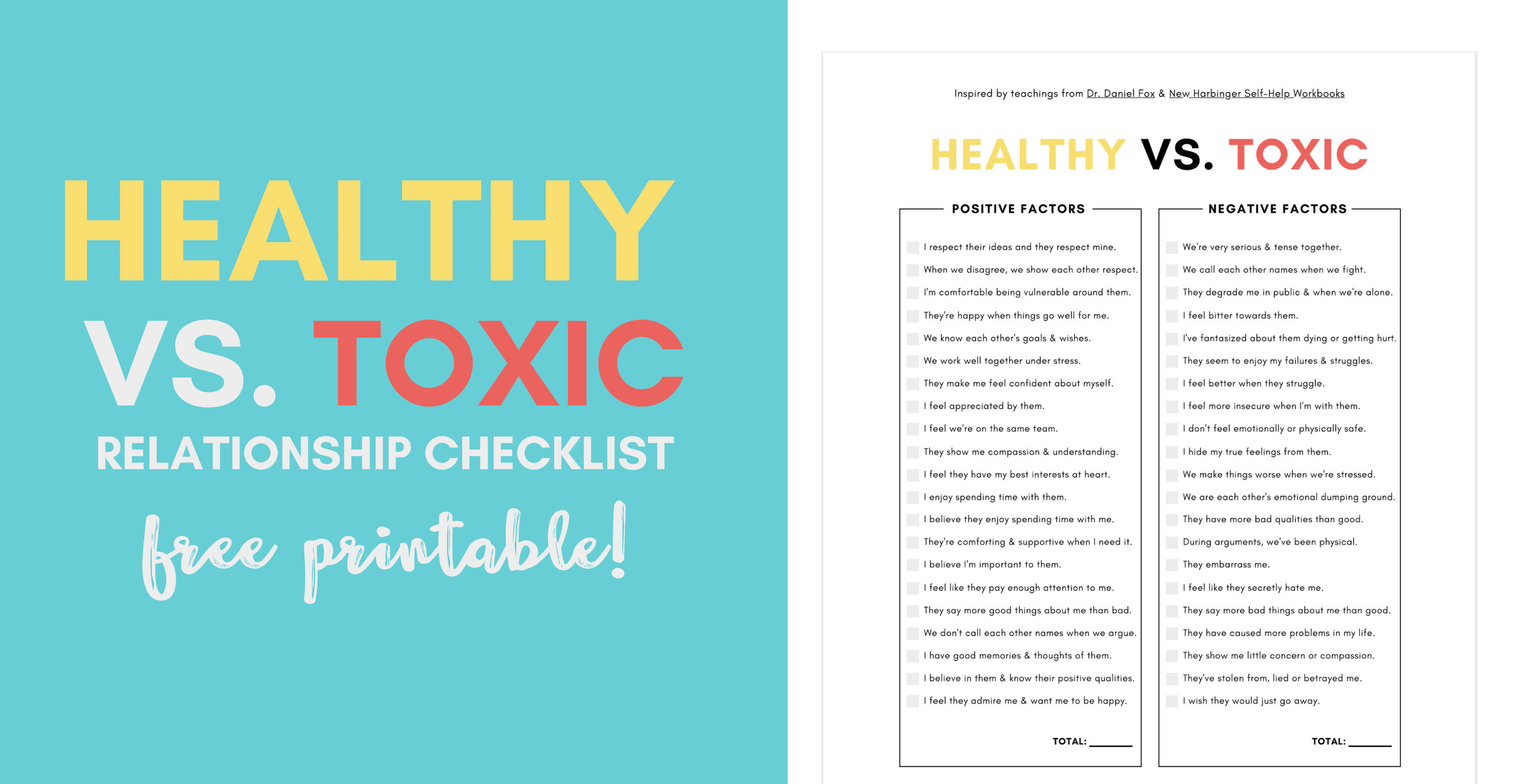
DOWNLOAD FREE PRINTABLE
Measure how healthy or unhealthy your BPD relationship is with the Healthy vs. Unhealthy Relationship Checklist.
When I first started BPD treatment, I was resentful over it. Why did I need to change everything about myself in order to be accepted by society? Why was I plagued with a debilitating condition like borderline personality disorder? Why did I have seemingly every single BPD trait or symptom that so ‘obviously’ made me unlovable, worthless and utterly hopeless? Why, why…why?
Acceptance of living with BPD actually brought me comfort, once I was ready for it at least. It is what it is. BPD is a part of me even when its symptoms have slowly weaned from my mind, like sand dropping from an hourglass.
I can’t change my past, or who I used to be, but I’ll be damned if I don’t use my experience to spread BPD awareness or give someone else hope that there can in fact be a light at the end of the tunnel. One of my biggest goals for BPD Beautiful is to help society with understanding BPD and to do my part, as a member of the BPD community, to decrease stigma.
If you’re living with BPD, and you fear abandonment and feel a sense of shame or chronic emptiness—please remember this: BPD recovery isn’t linear. BPD recovery isn’t a final destination…two steps forward, one step back & repeat is a perfectly acceptable way of recovering. Most importantly, recovery does not look the same for any two people living with BPD.
In my opinion, which has admittedly gotten me through many trying times over the years—recovery, of any kind, is a lifestyle; similar to eating wholesome foods to be healthy rather than taking part in a fad diet for quick weight loss. And trust me when I say, recovery is a more fulfilling lifestyle than refusing or giving up on treatment will ever be. It’s incredibly hard but it’s so, so worth it, and you…are capable.
BPD Resources
BPD Characters: Read the first 6 chapters of Sadie’s Favorite – an upcoming novel by Sarah Rose, creator of BPD Beautiful.
Get 20% off your first month of BetterHelp. Get matched with a licensed therapist within 48 hours. Subscriptions as low as $65/week, billed every 4 weeks. Cancel anytime.
Manage your BPD symptoms with a printable workbook.
See our recommended list of books about BPD.
Start a Discussion
Have you done DBT for BPD? Have your symptoms improved as a result, or do you find a different therapy method is more effective for you? Share your story in the comments! I love hearing from those living with BPD.
Pin This Post
Liked this post? Please help support BPD Beautiful and spread BPD awareness by pinning it on Pinterest.
